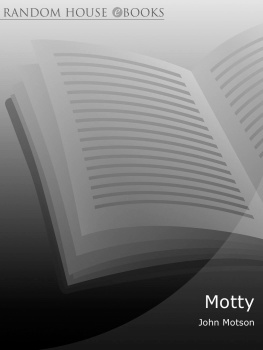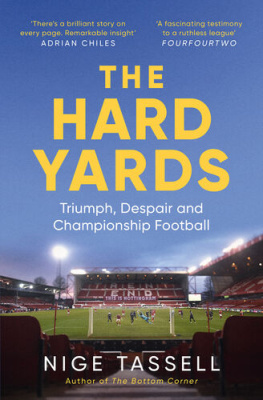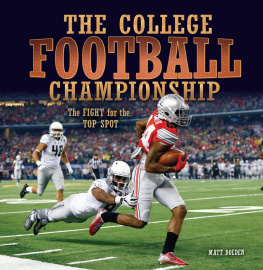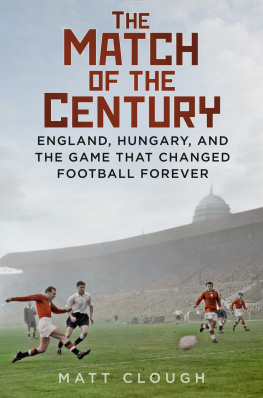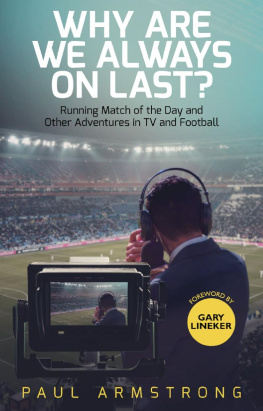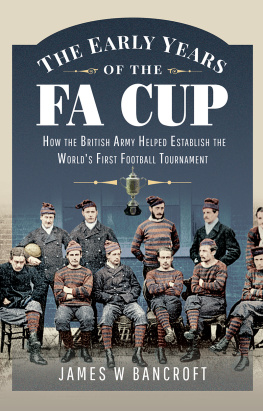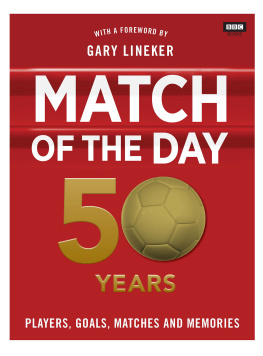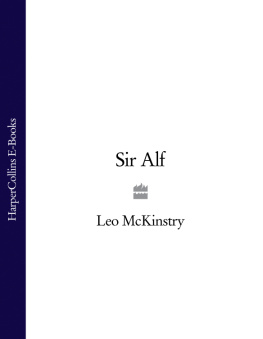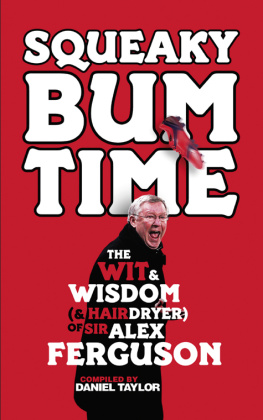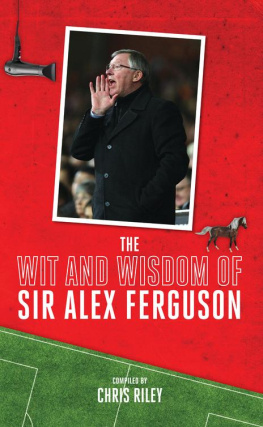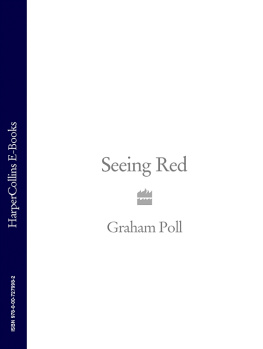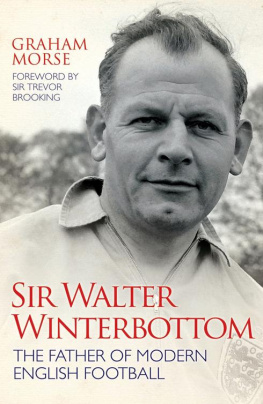CONTENTS
About the Book
From Ronnie Radford to Wayne Rooney, John Motsons knowledge and passion for football are unrivalled. In Motty, he guides us through a career which has spanned forty years and over 2,000 matches. In countless behind-the-scenes stories, we hear about the greatest matches he has watched and the greatest players and managers he has been privileged to know. He also reveals what he thinks have been the best games, goals and teams and gives us his take on the massive changes that are still transforming football today.
About the Author
J OHN M OTSON is the nations best-known football commentator. The son of a Methodist minister, he became a junior member of the Match of the Day staff in 1971 and soon became one of its key commentators. He has commentated on six World Cup finals and twenty-nine FA Cup finals and remains an integral part of the BBC TV- and radio-commentary team. In 2001 he received an OBE for services to sports broadcasting.
Also by John Motson
Second to None: Great Teams of Post-war Soccer
The European Cup 19551980 (with John Rowlinson)
Match of the Day: The Complete Record
Mottys Diary: A Year in the Life
Motsons National Obsession
Mottys Year
Motsons FA Cup Odyssey
Motsons World Cup Extravaganza
To my dear wife Annie, who suffered my long absences, and to my son, Fred, who became my best mate. Also to David Jones and Bob Abrahams, two of my mentors who both passed away in 2009. Without them, I would not have made the grade.
I couldnt consider retiring when there are still so many things I want to do.
Paul Anka on BBC Breakfast Time on his sixty-sixth
birthday, July 2007
The first and last appearances are the big ones. Everything in between is just your job.
Michael Parkinson on his own retirement at seventy-two in 2007
I like what I do and Im getting better at it, why shouldnt I continue? Is there something wrong with that?
Debbie Harry (Blondie)aged sixty-two
When I started in television there were only two channels, so if you were a success on one or the other you made quite an impact.
Sir David Frost
Never retire completely, Johnny. Dont even think about it.
Doug Ellis, aged eighty-fourin the Aston Villa boardroom
Prologue
At the end
ON THE MORNING of 29 June 2008, I was sitting in an outdoor caf in the Stadt Park, Vienna, when a young boy came up and introduced himself. He was twelve-year-old Maxim Fillin from Moscow, and hed come to Austria with his parents to watch the European Championships. Despite living in Russia, Maxim was extremely knowledgeable not only about English football, but also my own contribution. I dont like Russian football much so I download a lot of English games and listen to your commentary, he explained.
To be honest, I was glad of the interruption. Preparation for that nights final between Germany and Spain was not going well. Id been thinking about what Pierluigi Collina had said at the Referees Association Centenary dinner, when he was asked about how he had felt walking down the tunnel to referee the World Cup final. You think of the good games you have had earlier in the tournament that have got you selected for the final, Collina had said. Then you realise one single mistake would wipe all those away and be the only thing you are remembered for.
At a BBC press call two days earlier I had announced that Euro 2008 would be my last major tournament a ninth European Championship to go with nine World Cups. Would one mistake in the Ernst Happel Stadium, where the commentary position is farther from the pitch than anywhere else in Europe, spoil the memory of eighteen championships? Maybe even cast a shadow over thirty-seven years of television commentary?
It only needed me to call the wrong goalscorer, miss a yellow card, or misidentify a player at a key moment, and the viewers would be waving white handkerchiefs as a send-off. The thought was too frightening to contemplate.
I was so wound up that I can hardly remember anything at all about the actual game, other than the winning goal scored for Spain by Fernando Torres. But it must have gone quite well, because David Pleat, an old friend but at major tournaments a rival commentator with ITV, phoned me afterwards to congratulate me. He said he had watched the match at home and considered my partnership with Mark Lawrenson had been immaculate.
Gary Lineker also had something to say. At the airport the following morning, he confessed, I was a bit nervous for you last night. It would have been horrible if something had gone wrong for you on your last one.
Lineker had taken it upon himself, before handing over to me at the start of the match, to list my portfolio of big games for the BBC: nine World Cup finals, with the final itself coming my way six times; nine European Championships, with eight finals; twenty-nine FA Cup finals with five replays. Talk about putting me under pressure! After the final whistle, though, he was kind enough to say I had played a blinder.
I suspect not all the 12 million viewers would have agreed with that, but as such luminaries as David Coleman and Sir Peter OSullevan have said: Sports commentary is first and foremost about survival. They couldnt be more right: all those big games look great on my record, but a critical mistake in any one of them could have made my career unrecoverable.
This, then, is the story of how I survived for the best part of forty years
PART I
Barry commentates from the grandstand, John is talking from the terraces
Chapter 1
Motson, thats your lot son
Mugged in Manhattan
ROSIE OGRADYS BAR and restaurant is on Seventh Avenue in New York, more or less opposite the Sheraton Hotel and Towers. It has a perceptibly Irish feel to it, as well as a sporting one. There are framed baseball and American football memorabilia in the bar at street level, but downstairs, curiously for a steak and seafood house in the theatre district of the Big Apple, there is a collection of fine prints of celebrated cricketers.
There was nothing for me to celebrate when I took a call on my mobile in the upstairs bar during the World Cup of 1994. At the time I was enjoying a beer with David Davies, a former BBC colleague working for the FA, and Terry Venables, who was working with the BBC as a co-commentator. Terry had just taken the job as England coach following Graham Taylors failure to qualify for the tournament.
The call came from Malcolm Kemp, the BBC team leader at the International Broadcast Centre in Dallas, and it was not good news. Im ringing to tell you that Barry has got the final, intoned Kemp in his thick New Zealand accent.
If Im being honest, the call did not come as a complete surprise, since the BBC had played off Barry Davies and me in a neck-and-neck contest for nearly twenty years. Up to that point, I had enjoyed by far the best of it. Sixteen successive FA Cup finals had come my way, including the most recent one, while Barry was still waiting to commentate on his first (usually he had been awarded the European Cup final instead, which, not unreasonably, he saw as the second prize). It was much the same story with World Cups. After David Coleman handed over the microphone following the 1978 tournament in Argentina, I had broadcast the next three finals, culminating in Italy in 1990.
In 1994, though, it had been my understanding that some in the BBC hierarchy were putting pressure on the heads of my department to make a change. They preferred Barrys more restrained style to my own. I sensed that editor Brian Barwick had fought hard to keep me in the seat during Italia 90 when others had wanted him to make the switch. Four years later, having left the decision until after the quarter-finals, he went the other way.
Next page
